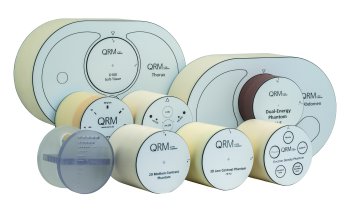Cultural-sensitive care and the European Qualification framework
By Stephan von Bandemer and Canan Mavis Richter, Institute for Work and Technology, Gelsenkirchen, Germany
Healthcare services often do not reach the target groups because socio-cultural preferences and values of patients and their relatives are not properly considered.

The problem is especially severe in the case of the growing migrant population and results in higher rates of infant mortality, obesity, diabetes prevalence, coronary heart diseases, stroke and others. Increasing problems also emerge in case of geriatric care with the aging of migrant population.
The reasons for the existing under-supply of healthcare are often seen in language barriers, a lack of knowledge about the healthcare system, or lower social and educational status. However, additional and even more relevant reasons occur due to a lack of understanding of individual preferences and values that are based on different lifestyles, milieus, settings, heritage or religious backgrounds.
Approaches to individualised healthcare, based on patients’ cultural differences, are now analysed and integrated into education systems for nurses in a European project within the Leonardo programme; this recently had its kick off meeting in Edirne, Turkey. The project team includes members from Germany, Poland, Romania and Turkey and it develops modules for education in cultural-sensitive care in different levels of the European Qualification framework.
The basis for the design of individualised healthcare is a model of the daily physical and psychological needs of individuals under consideration of cultural differences. It combines requirements from the individual and the professional perspective with psychological and physiological needs as dimensions of the appropriateness of healthcare. Especially the dimension of individualisation needs much more emphasis since the demand for and the utilisation of healthcare as well as patients compliance to therapy is to a considerable extent determined by complex systems of socialisation of the patients.
Individualisation of healthcare services is not in contrast but complementary to professionalisation and standardisation. Professional standards should include the differences and preferences of patients. Due to different socialisations of patients concerning lifestyles, milieus and institutional settings, professional standards of healthcare can not only rely on scientifically based medical rationales but must also develop and incorporate science-based social and cultural rationales and attitudes in order to provide an appropriate customised healthcare.
Instruments to achieve these objectives are communicative and reflective planning, and implementation processes of healthcare services that should be integrated into education and further training. To achieve this task the Leonardo project develops education modules based on cultural-sensitive healthcare processes that reflect the different preferences of patients. These modules are aligned with the different levels of the European qualification framework. The levels range from basic knowledge, skills and competencies to the highest expertise and excellence. The different levels are made comparable by credit point systems, according to the ECVET (vocational training) and ECTS (academic education) system.
This concept was first applied in the education of formerly unemployed youth with a Turkish migration background, in a pilot project in Gelsenkirchen, Germany. The evaluation of the project showed that a consequent orientation towards the elementary preferences of the patients, combined with professional standards of geriatric care and the systematic consideration of psychological and physiological dimensions, not only increased the acceptance and compliance by the patients, but also increased the satisfaction of involved healthcare professionals as well as the performance and effectiveness of participating healthcare institutions. The essential difference of the approach to other healthcare concepts has been the systematic consideration and acceptance of different preferences and values of patients in education and health services. The tension between science-based professional standards of healthcare and also the science-based analysis of differences in preferences of the target group cannot be resolved in favour of one side or the other; it has to be systematically integrated into healthcare processes.
This approach is not only favourable for the migrant population but also for native patients and healthcare institutions. The differences in social and cultural preferences are not only based on heritage; they result from a complex socialisation of patients as well as healthcare professionals. Institutionally, the integration of differences of elementary preferences into healthcare processes reduces conflicts and frictions and increases staff and customer satisfaction. This also improves the profitability of the healthcare institutions.
In general, this approach is transferable to all levels of healthcare, beginning with prevention programmes, acute care, rehabilitation and geriatric care. It reflects the constitutional principles of personal services, where the provider and customers must cooperate and match the professional standards of the provider, and the individual expectations and preferences of the customer. Therefore, the individualisation of planning and implementation of healthcare processes based on social and cultural differences of preferences and values is an essential element for the effectiveness of healthcare.
01.05.2009











